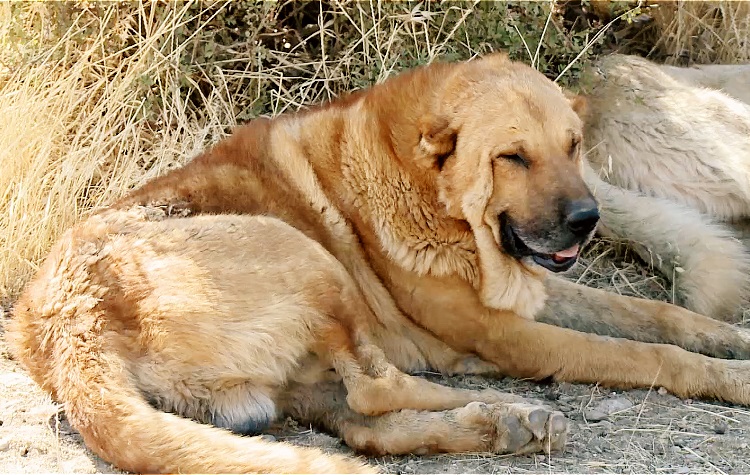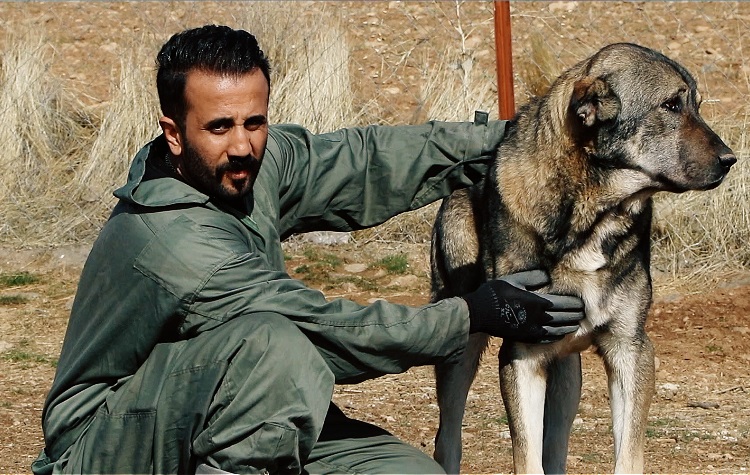SAQQEZ, Iran – Milad Faizi wanted to raise dogs since he was a boy. His childhood dream came true when he opened his dog breeding business in the rural Iranian Kurdish district of Saqqez.
Milad raises Kurdish Mastiffs, otherwise known as the Pshdar or Assyrian Shepherd. Males of the breed can grow to 90 centimeters in height and weigh up to 80 kilograms.
He brings the puppies from the Kurdistan Region of Iraq to raise and sell in Iran for guard duties or blood sport.
“I have been raising these dogs since they were puppies. I have sold many dogs to people across Iran to raise and own. They have had many generations from them,” Milad explains.
People come from far and wide inquiring about the Pshdars. Faizi says he’s even had visitors from the Afghan border in the far east of Iran.
Pshdar dogs are among the oldest breeds in Asia, dating back 5,000 years. The strong and intelligent breed has long been used by shepherds to guard their flocks. But they are also cruelly misused for dog fighting.

Milad’s customers know what they’re looking for from a Pshdar dog.
“The native dog I bought from Mr. Milad has an authentic ancestry on both the male and female side. They are great fighters and make good guard dogs. I have a farmhouse and I use the dogs to guard it. I have some other Pshdar dogs. I’ll put them together,” says customer Khabat Azizi.
The dogs sometimes get sick in the cold weather and suffer with seasonal influenza, so Milad brings a veterinarian to the farmhouse every week to give the dogs a checkup. He makes sure they’re all properly documented to make their medical care easier.

“First of all I make them ID cards. I record their date of birth and the vaccines and the medications they need so you can benefit from these when needed,” Milad explains.
“When they get sick, I contact a veterinarian in another city. Sometimes my puppies get sick and I take them to Tabriz or Tehran to see the veterinarian. I grieve so much until they get better.”




Comments
Rudaw moderates all comments submitted on our website. We welcome comments which are relevant to the article and encourage further discussion about the issues that matter to you. We also welcome constructive criticism about Rudaw.
To be approved for publication, however, your comments must meet our community guidelines.
We will not tolerate the following: profanity, threats, personal attacks, vulgarity, abuse (such as sexism, racism, homophobia or xenophobia), or commercial or personal promotion.
Comments that do not meet our guidelines will be rejected. Comments are not edited – they are either approved or rejected.
Post a comment